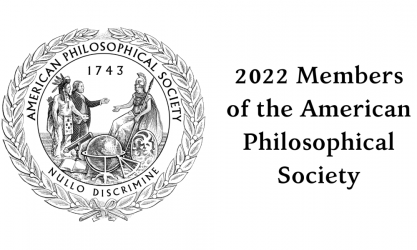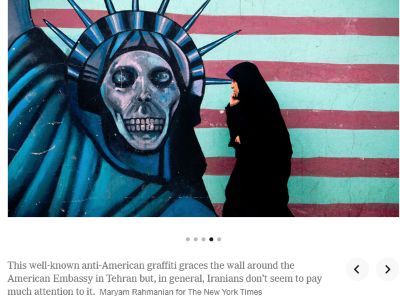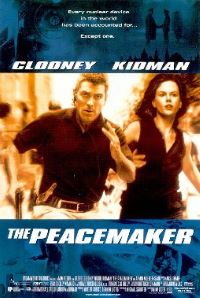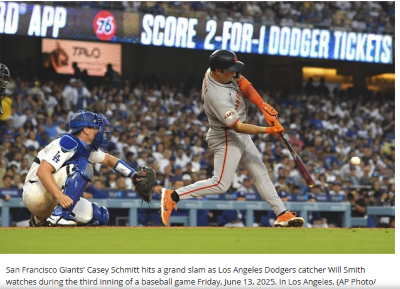
This review of the state of the American Revolution 250th continues with a free conference held by the David Center for the American Revolution at the American Philosophical Society.
The conference aims to be unlike a traditional scholarly conference. Instead of scholars presenting scholarly papers to a scholarly audience, we hope to bring together public intellectuals, scholars, leaders of cultural organizations and government agencies, and other thought leaders who have an interest in the Revolution and its commemoration in 2026. We plan to draw a large in-person and online audience that represents this cross-section of individuals along with members of the public and educators. Our hope is that by bringing this diverse group of people together, attendees may be able to network with others and perhaps lay the foundation for collaborations that will bear fruit in 2026.
In the session entitled “Slavery, Race & Revolution” the following paper was presented with printed copies available to the registrants.
“’Cruel war against human nature itself’: Understanding the American Revolution’s Impact on Slavery within the Context of Imperial Governance” by Holly Brewer (University of Maryland)
The importance of this paper is the effort to place the American Revolution within the context of the British imperial system. Britain had 40 colonies and slavery was legal in all of them [Note – other presenters used other numbers.] The slave population reached 80% in some cases. Yet as we know, only 13 colonies rebelled.
Brewer examined the legal policies regarding slavery throughout the empire. She referenced a project which now can be accessed at Slavery, Law & Power.
SLP (Slavery, Law, and Power) is a project dedicated to bringing the many disparate sources that help to explain the long history of slavery and its connection to struggles over power in early America, particularly in the colonies that would become the United States. Going back to the early English Empire, this project traces the rise of the slave trade along with the parallel struggles between monarchical power and early democratic institutions and ideals. We are creating a curated set of documents that help researchers and students to understand the background to the fierce struggles over both slavery and power during the American Revolution, when questions of monarchical power, consent to government, and hereditary slavery were all fiercely debated. After America separated from Britain, the United States was still deeply influenced by this long history, especially up to the Civil War. The colonial legacies of these debates continued to affect the course of politics, law, and justice in American society as a whole.
The following day the session on “Contesting Power & Authority in the Age of Revolutions” again with printed copies available to the registrants included:
“Sigenauk’s War of Independence: New Indian Leadership and the Struggle for Autonomy in the Revolutionary Borderlands” by John Nelson (Texas Tech University)
Sigenauk is probably not a name familiar to most students of the American Revolution. One reason is because of the variations in his name in the French, Spanish, British, and American sources. His very inclusion in multiple archives attests the multiple peoples both Indian and European with whom he came in contact both peacefully and violently. He challenged British authority in the Great Lakes region and dealt with factions among his own people. He reminds us of the geographical range of the American Revolution beyond the eastern coastal area, a theme to which other presenters would return. Whereas the previous paper sought to place the American Revolution within the context of the global British Empire, this one situates it among the range of peoples present in the interior of the continent and of the need to know their names, that is, not make blanket stereotypical assumptions about the positions of two-dimensional beings but to recognize that individuals and peoples need to understood in their own right.
The final paper I saw that day was
“the disagreeable situation in between the Civil in the Military’: Prisoners of War and Local Governance in the American Revolution” by Susan Brynne Long (University of Delaware).
This paper focused on one of the more disagreeable aspects of war, in this case, the prisoners of war. The traditional focus on battles often obscures what happens afterwards. Both sides took captives. This paper was not about the infamous prison ships in New York harbor that caused more deaths than the battles but on the reverse, the prisoners held by the Americans. The people captured by the Americans tended to be scattered among small isolated communities which acted on their own or under conflicting authorities.
One particular area of interest to me not in this presentation is for the prisoners who chose to remain here after the war. I am referring to the Hessians held in ethnically-German areas in Pennsylvania. They intermarried, became patriotic Americans, and created descendants with conflicting stories to tell about their ancestors being on the wrong side on the birth story of the country they now call home.
Opening Keynote: Meanings of Independence
This one hour and 12 minute session can be viewed by clicking here. The participants included:
Scott Stephenson (President and CEO, Museum of the American Revolution)
Anthea Hartig (Elizabeth MacMillan Director, National Museum of American History, Smithsonian Institution)
Christy Coleman (Executive Director, Jamestown-Yorktown Foundation)
Moderator: Patrick Spero (Librarian and Director, Library & Museum of the American Philosophical Society)
The questions posed by the moderators to the panelists included:
When you think of the Declaration of Independence what one word comes to mind?
One answer by Anthea Hartig that stood out for me was considering the meaning to people outside the United States. I would add that when we think of the image of the country as a city on a hill that eyes of the world are on, the words Thomas Jefferson wrote in 1776 never occurred to John Winthrop in 1630 when he wrote them. Like thinking of the many colonies of Britain which did not revolt, we would be remiss in our attempt to understand the Declaration if we ignore its impact on the rest of the world as well as to generations to come in the United States.
She also noted the concerns raised by teachers vising the National Museum of American History over what they are allowed to teach now given state regulations.
What does success for 2026 look like?
Hartig drawing on her inner Benjamin Franklin replied a democracy if you can keep it. In this regard the 250th faces a challenge the Centennial and Bicentennial did not. This anniversary is occurring as our latest civil war threatens to tear the country apart.
As Christy Coleman said in response to a question from the audience, the framers did not expect their creation to last for 250 years. In response to the moderator question, she mentioned Spanish and Sephardic Jews as people who have been let out of the narrative. She added that there is nothing wrong with talking pride in what the founders accomplished while simultaneously recognizing not to stop there. In her answer to the previous question she noted the wonderful concepts at our founding and referred to the American experience as a journey meaning not a fixed point in time.
The next day began with a panel on Experiences of Revolution with:
Adrienne Whaley (Director of Education and Community Engagement, Museum of the American Revolution)
Lauren Duval (The University of Oklahoma)
Michael Galban (Curator for the Seneca Art & Culture Center at Ganondagan State Historic Site) [unable to attend]
Moderator: Robert Parkinson (SUNY Binghamton)
This two hour session is available online by clicking here.
Again, I am not recapping the entire session but highlighting some ideas that stood out to me.
Richter observed that there were multiple wars of independence. By this he meant that besides our American Revolution there were multiple Indian nations also seeking independence from European rule. Other presenters expressed the same idea.
Whaley brought up the importance of telling stories through individuals. She returned to that theme in the Q&A by commenting that teachers on the ground are hungry for these stories as are their students. She said our stories are civics meaning they touch on ideals as well as personal lives. Since we are a storytelling species, it seems logical to me that one of the most effective ways to reach the public will be through stories about individuals. People relate to stories.
The Q&A raised some pertinent questions:
1. Where is military history? – this theme has been raised before in my blogs and will be again so I am just noting that it was asked for now.
2. What resources will be available in 2026? – this topic was the subject of a previous blog on the state of the National Commission. It will be addressed in a forthcoming blog on a report just issued by the AASLH on the state of the 250th.
Whaley responded with the critical point of the challenge to smaller organizations that do not have the resources to get their message out. I have mentioned this concern several times as well. I will return to it in a blog on a national history organization census just completed by AASLH. It highlights the number of small volunteer history organizations throughout the country.
3. A community college teacher commented that she was shocked at what must be happening at the k-12 level given the knowledge of her students.
The next session was War and the Revolution. The panelists were:
David Waldstreicher (The Graduate Center, CUNY)
Rebecca Brannon (James Madison University)
Kieran O’Keefe (George Washington University)
Moderator: Brendan McConville (Boston University)
The one hour and thirteen minute session can be viewed here.
There are multiple points of interest to recount from this session.
1. the participants in the American Revolution referred to it as a civil war.
2. the local fighting was often out of control of the national armies.
3. the question of the impact of photographs [the internet, disinformation] was asked if that technology had existed [as it did during the Civil War].
4. the shock of the French fleet appearing in New England as our allies to people who remembered the French and Indian War.
5. the issue of how do we (northerners) include the South in the story?
This last item is one of particular interest to me. Typically people refer to marginalized peoples in the national narrative as told by white men. What this simplified vision ignores was that in the 19th century these white men tended to be from Massachusetts — does the word “Harvard” ring a bell — so there were plenty of white men left out of or minimized in the “Harvard” version of the American Revolution.
The next session was The Revolution Beyond its Borders with panelists:
Andrew Jackson O’Shaughnessy (Saunders Director, Robert H. Smith International Center for Jefferson Studies at Monticello)
Kathleen DuVal (University of North Carolina, Chapel Hill)
Ashli White (University of Miami)
Moderator: Eliga Gould (University of New Hampshire.
The one hour and five minute session can be viewed here.
Duval noted that boundaries were not clear then. 13 was not yet a magic number and there was no sea-to-shining-sea country. The frequently-overlooked Spain had increased its colonial holdings and defeated the British in battles such as at Mobile and Pensacola. She, too, observed that multiple wars of independence were occurring including among competing Indian nations. The maps that show only a sliver of the continent in 1783 are deceptive.
Duval presented other information that is directly relevant. Spain and the Indians now had a joint enemy – the need to stop the “plague of locusts.” She said the Cherokee national leaders also wanted to be recognized as a nation. They were aware of the actions taken by the United States. She quoted Onondaga Clear Sky in 1794:
… we are of the same opinion with the people of the Unite States. You call yourselves free and independent. We as the ancient inhabitants of this country and the sovereigns of tis soil say we are equally as free as you or any nation of nations under the sun.
One could add that recent Supreme Court decisions attest the continued issue of authority and the tribal nations. As a reminder the centennial of the Indian Citizenship Act of 1924 provides a needed opportunity to revisit the questions of sovereignty (What Are You Doing for the Indian Citizenship Act (1924) Centennial? August 6, 2021). Personally, I would welcome a conference on this topic.
O’Shaughnessy commented on the academic blind spot to doing military history. In so doing, we ignore the significance of a counter-insurgency. One implication of his observation is that if we recognized our own origins in a successful counter-insurgency we would be more likely to recognize its effective potential elsewhere today. Along those lines he compared the failure of the people who told LBJ and King George III that their respective wars were being lost: these leaders only heard what they wanted to hear.
Both O’Shaughnessy and White commented on role of the Caribbean. Why didn’t they rebel too? What about the future revolutions in France and Haiti? One might add the revolt in Jamaica. Another consideration is not just the Loyalists who evacuated New York on November 25, 1783, for Canada, but the southern evacuations to the Caribbean. While we focus on the settlers from England in the 1600s we tend to overlook the settlers from Barbados to the Carolinas and that the Caribbean was their homeland.
At this point, I raised a question in the Chat function about the presenters’ use of the term “America” to mean the United States. Don’t scholars from Central America and South America also use the same word without limiting the meaning to the United States? That led to additional comments in the Chat about when “America” was first used to refer solely to the United States. One registrant referred to a speech in the Nova Scotia Gazette published on May 2, 1775 on this usage. Another chimed in that is interesting that Canadians used the term this early. Another traced the reproduction of the speech back to a London newspaper.
The next-to-last session of the conference was education oriented: Commemorations and Classrooms. The panelists were:
Cindy MacLeod (Superintendent, Independence National Historical Park)
Shaquita Smith (Social Studies Curriculum Specialist, School District of Philadelphia)
Ismael Jimenez (Social Studies Curriculum Specialist, School District of Philadelphia)
Robert Allison (Revolution 250/Suffolk University)
Moderator: Kyle Roberts (Associate Director of Library & Museum Programming, American Philosophical Society)
The one hour and seven minute session can be viewed here.
MacLeod observed that people think history is names, dates, and places. I note this observation is frequently made. On the one hand, it contributes to the high trust people have in museums and organizations presumed to present names, dates, and places. On the other hand, it can be boring too. MacLeod alluded to this perception with her call to make history come alive. As just noted we are a story-telling species hungry for stories about individuals. Does the name Hamilton ring a bell?
Smith put a physical dimension to history. Don’t just put textbooks in front of students. Visit museums. See artifacts. I would add visit the actual sites which was the basic theme of IHARE’s Teacherhostels/Historyhostels.
Smith deplored the current battle with the internet. Students go online first. They do not know how to fact check. They do not know how to analyze multiple sources. We are not winning the battle.
Jimenez reiterated the point: to students history is facts and dates. He added the many Americans could not pass the citizenship test which is an indictment of our education system. His students are shocked that the BOSTON MASSACRE was five deaths – more than that can occur at a high school [or July 4 parade] today! His Philadelphia students do not know why the local professional basketball team is named the 76ers. He sees America as unraveling and the need for a new narrative. He states we are not winning the conversation with older adults on history research. Given the emphasis by the national commissions on celebrating the 250th in Philadelphia mentioned in previous blogs, these comments by a Philadelphia teacher on the disconnect between his students and the American Revolution are disturbing.
Allison was just as disturbing. History is an inquiry into the past but we are not doing a good job of informing the public. He pointed out that 8th grade may be the last time students learn about American history in a school environment. He does not say so, but what exactly are the thinking skills in an 8th grader anyway? The maturation process continues to age 25 on average but the cutoff for history classes requiring thinking is at age 13!
In the Q&A, some of the comments were:
1. what do we do when we are not a wealthy history museum?
2. scholarship is not trickling down
3. getting a state commission passed for the 250th is difficult and there are grudges in the state history community (Jonathan Lane, Massachusetts)
4. historians do not necessarily know how to talk to people (meaning non-academics).
Closing Keynote: Reflections on the Past; Ideas for the Future
Alan Taylor (University of Virginia)
Mary Beth Norton (Cornell University)
Moderator: Serena Zabin (Carleton College)
The one hour fifteen minutes session can be viewed here. Each panelist spoke separately followed by a Q&A.
Norton recalled that on her first visit to the Yorktown battlefield it was a Civil War site. Now it has become an American Revolution one. She also recalled her own pioneering work on women in the American Revolution and noted that the segregated study of women exists. As for her own students at Cornell, they would have been Loyalists!
Taylor joined the chorus of scholars realizing that we are not connecting that well with the general public. He said this was a fraught moment for the Republic. Historians need to contribute positively to overcoming the danger. He said the assumption that the next generation of Americans could be shaped through government mandates has created a burden for teachers. He, too, noted that the national myth is unraveling and he didn’t know what to do. Most distressing, don’t you think to hear this from a leading American historian?
In response to the question of the moderator, Taylor elaborated on his presentation above. He said scholars need to listen and not just tell people which is a turnoff. The other side doesn’t expect us to listen to them since to them we are elitists. Compromise was not possible. Purism has become the goal … and it can get worse.
One question from the audience was a statement: if you wanted to have the South in the Union then the United States had to have slavery, an issue noted in a previous session (above).
That statement about slavery is historically accurate but unacceptable to many people today. As we get closer and closer to 2026, more and more people will say the Great Compromise that made the Constitution possible should have been rejected – the compromise with slavery should not have been accepted. We should have been “pure.” It would have been better if the country had failed and divided into its constituent parts. Then there would have been no Civil War since the Union and the Confederacy already would have existed. Then the third civil war would not be fought today since the red and blue states already would have been divided into the Blue and Grey countries.
So far at least, all the planning for the 250th, however meager it may be, is still based on our being a single country in 2026.






Hi, Peter.
Thanks for this robust synopsis of the conference. It’s informative in content and useful in brevity (considering the length of the conference overall and individual sessions).
I appreciate that you keep showing up at these convenings and sharing out what you come away with.
Best,
Martha Swan
John Brown Lives
Fantastic summary. Lots to chew on here.